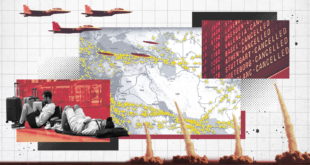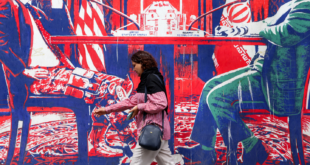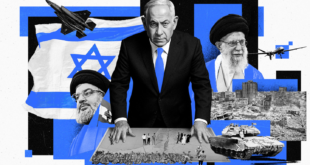 TEHRAN (FNA)- Iran builds its economic policy in conformity with growing sanctions of the West and UN Security Council and the rise in oil prices will save the country from sanctions, a former advisor to the Central Bank of Iran said.
TEHRAN (FNA)- Iran builds its economic policy in conformity with growing sanctions of the West and UN Security Council and the rise in oil prices will save the country from sanctions, a former advisor to the Central Bank of Iran said.
“The Government made required purchases so as to prevent the impact of probable sanctions,” Bijan Bidabad, former CBI Advisor told trend capital.
The drop in oil prices showed that from a theoretical viewpoint the United States may impose new sanctions on processing and sales of Iranian oil to pressure Iran, Stratfor strategic forecasting centre said in a statement on 16 October. However, the United States needs support from European and other countries to do that, it added.
Last week, Iran’s President Mahmoud Ahmadinejad said the volume of the country’s currency reserves is secret.
According to Bidabad, Iranian officials may secretly use the currency reserves to reduce the possible damage from the UN Security Council’s sanctions.
“Tehran uses the currency reserves as a shield against the sanctions. So, the volume of them is not divulged,” he said. “Approximate volume of Iranian currency reserves is known to world’s financial structures. Iran cannot completely hide the information from them.”
So far, the UN Security Council has adopted four resolutions against Iran demanding Tehran to give up its Non-Proliferation Treaty (NPT) right of uranium enrichment.
Iran says the demand is politically tainted and illogical.
Iran has so far ruled out halting or limiting its nuclear work in exchange for trade and other incentives, saying that renouncing its rights under the NPT would encourage world powers to put further pressure on the country and would not lead to a change in the West’s hardline stance on Tehran.
Iran has also insisted that it would continue enriching uranium because it needs to provide fuel to a 300-megawatt light-water reactor it is building in the southwestern town of Darkhoveyn as well as its first nuclear power plant in the southern port city of Bushehr.
China, which is a permanent member of the UN Security Council and has the right of veto, will be the hugest trade partner of Iran in 2008. According to Iran’s investment statistics, Germany and other European countries have been the biggest trade partners of the country for about ten years.
Oil incomes of Iran exceeded forecasts in 2008. Average oil price is fixed at $60 per barrel in Iran’s budget.
The Iranian government transferred some part of oil incomes to the currency reserves for the time when the country is faced with a rise in sanctions or outbreak of war. Iran has made a decision to reduce impact of sanctions through domestic forces and the currency reserves.
 Eurasia Press & News
Eurasia Press & News


